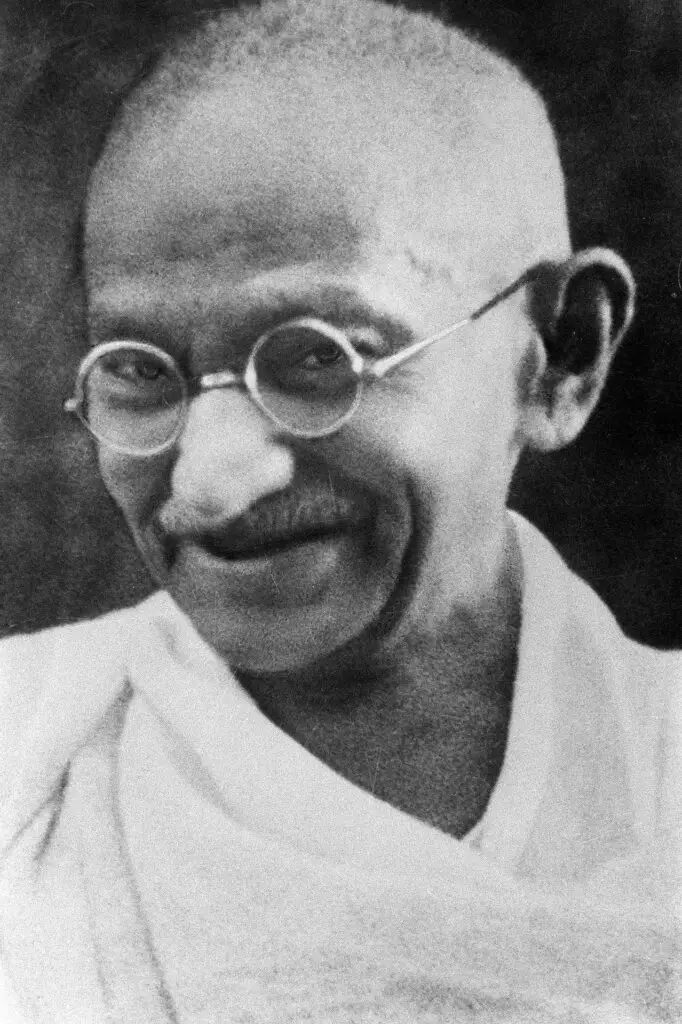We hope you enjoy our articles. Please note, we may collect a share of sales or other compensation from the book links on this page. Thank you if you use our links, we really appreciate it!
Published January 29, 2022
On January 30, 74 years ago, Mahatma Gandhi was shot dead while attending a prayer session in New Delhi. He used to attend prayers with two goals in mind: to pray to God for the wellbeing of mankind, and to meet visitors and interact with them.
One of the devotional songs Gandhi used to listen during these prayer sessions included: Vaishnav jana to tene kahiye pid parayi jane re (the person is divine, who feels others’ pain. One can listen to this song with English subtitles at this weblink). The song, written by the 15th century Gujarati saint-poet Narsinh Mehta, implores individuals not to be solely occupied with self-indulgence, but to care for others. The spirit behind the song is: service to mankind is service to God. Gandhi was not only listening to the prayers but also following them in practice. Hypocrisy was foreign to him as for him a noble thing learnt is meant for practice. For him, there was no separation between thought and practice. A British educated, renowned lawyer in South Africa, Gandhi left the riches except a loin cloth to ‘experiment with truth.’
Gandhi was influenced by his mother, a pious woman, and listened to her stories from Hindu scriptures. Though Gandhi was influenced by Hindu religion, his worldview was multicultural and pluralistic. For him, all religions are paths to God-realization. Religion does not mean ritualism or dogmatism. If religion is an obstacle on the path of God-realization, better it be shunned. He wrote that all religions are like different flowers which make the garden of human society beautiful. While India was burning in communal fire as Hindus and Muslims killed each other after the partition of the subcontinent, Gandhi instead of attending the independence celebrations in Delhi marched to far flung areas to douse the communal fire.
When an inmate of his ashram cut a small branch of a tree in a careless action, Gandhi’s anger was without limit. He saw life in everything, both animate and inanimate. For him, in an animal or a tree dwells God, as in a human being. The prayers and readings from scriptures deeply influenced his thought and action. He was called a politician among saints and saint among politicians. His vision of an ideal state is what he termed Ram Rajya (Kingdom of Ram or God), a place in which Truth reigns supreme. Ram, the Hindu God, is considered an ideal king who followed the rules honestly and did not hesitate to be harsh on his family members if the rule demanded.
For Gandhi, the poor must be factored in policymaking. He advised the policymakers, in what is famously called Gandhi’s talisman, “Whenever you are in doubt, or when the self becomes too much with you, apply the following test. Recall the face of the poorest and the weakest man whom you may have seen, and ask yourself, if the step you contemplate is going to be of any use to him. Will he gain anything by it? Will it restore him to a control over his own life and destiny? In other words, will it lead to swaraj (freedom) for the hungry and spiritually starving millions? Then you will find your doubts and yourself melt away.” For Gandhi, earth has enough for everyone’s need but not enough for anyone’s greed. When King George V inquired during Gandhi’s visit to Buckingham palace in 1931, why the Indian leader had put on scant cloth Gandhi’s reply was: “The king has enough clothes on for both of us.”
Gandhi argued that there is no limit to human greed. Greed not only leads to corruption and demoralizes public and private life but also leads to concentration of wealth in the hands of the few at the cost of the many. He made a case for a different kind of economic arrangement in which the rich will not be the possessor of their wealth, but a trustee of it, not for self-indulgence but for the greater wellbeing of the society. In Gandhi’s life philosophy there is no disparity between the inner and the outer. The person who is honest and truthful in his inner core cannot be dishonest and corrupt in his outward conduct.
Gandhi was concerned at the arms race that was gathering speed during early days of the Cold War. At the Asia Relations Conference in New Delhi in 1947, he argued for a non-violent, peaceful world, where nations would realize their full potentials in the spirit of harmony and brotherhood. As colonialism was still a raging phenomenon those days, Gandhi in the conference raised the pitch to fight against this menace through non-violence. In his words, “I do not want merely to appeal to your head. I want to capture your heart … In this age of democracy, in this age of awakening of the poorest of the poor, you can redeliver this message with the greatest emphasis. You will complete the conquest of the West, not through vengeance, because you have been exploited, but with real understanding. I am sanguine, if all of you put your hearts together–not merely heads–to understand the secret of the message these wise men of the East have left to us, and us if we really become worthy of that great message, the conquest of the West will be completed. This conquest will be loved by the West itself.”
Gandhi’s ideas related to alcohol, animal-killing and Brahmacharya (celibacy, a crude translation) are almost extinct from public debate. In a recently published book, we dealt with his ideas on Brahmacharya from a cross-cultural perspective. His autobiography is full of accounts of how he struggled to conquer desire.
It is apt here to quote Einstein, who paid a fitting tribute to Gandhi, “A leader of his people, unsupported by any outward authority; a politician whose success rests not upon craft or mastery of technical devices, but simply on the convincing power of his personality; a victorious fighter who has always scorned the use of force; a man of wisdom and humility, armed with resolve and inflexible consistency, who has devoted all his strength to the uplifting of his people and the betterment of their lot; a man who has confronted the brutality of Europe with the dignity of the simple human being, and thus at all times risen superior. Generations to come, it may be, will scarce believe that such a one as this ever in flesh and blood walked upon this earth.”
Gandhi is dead, but the ideas that Gandhi represented are relevant in the present era which has witnessed unbridled competition, rampant corruption and increasing polarization.



